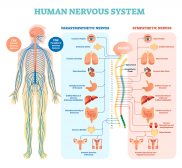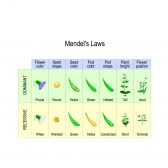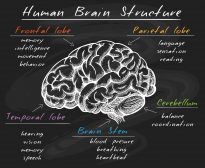phasic –>
adaptation
1. (Science: cell biology) The adjustment of an organism to its environment or the process by which it enhances such fitness.
2. (Science: ophthalmology) The normal ability of the eye to adjust itself to variations in the intensity of light, the adjustment to such variations.
3. (Science: neurology, physiology) The decline in the frequency of firing of a neuron, particularly of a receptor, under conditions of constant stimulation.
4. (Science: dentistry) (a) the proper fitting of a denture, (b) the degree of proximity and interlocking of restorative material to a tooth preparation, (c) the exact adjustment of bands to teeth.
5. (Science: microbiology) The adjustment of bacterial physiology to a new environment.
Origin: L. Adaptare = to fit
Dictionary > Phasic
You will also like...

The Human Nervous System
The nervous system is essentially a biological information highway. This tutorial gives an overview of the nervous syste..

Lotic Communities & Algae
Lotic communities have conditions that are rather harsh for typical plants. Thus, the diversity of plant species in loti..

Mendel’s Law & Mendelian Genetics
One of Mendel’s law of inheritance is the “law of dominance”. Read this tutorial to know more about this form of i..

Protein Activity and Cellular Metabolism
Proteins have a crucial role in various biological activities. Get to know how proteins are able to perform as enzymes, ..

The Conscious & Unconscious Nervous System
This tutorial elaborates on how the nervous system works, particularly at the tissue level of the brain. There are three..

Digestion and Absorption of Food
The gastrointestinal system breaks down particles of ingested food into molecular forms by enzymes through digestion and..

